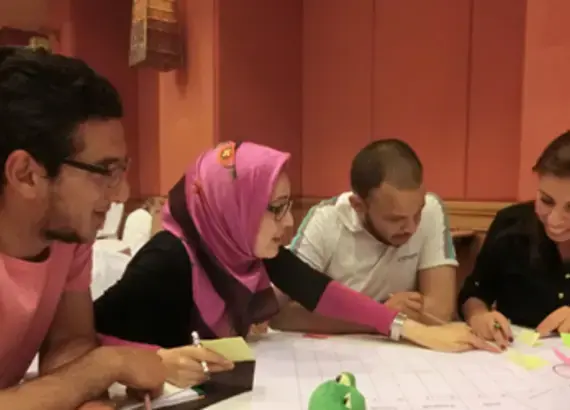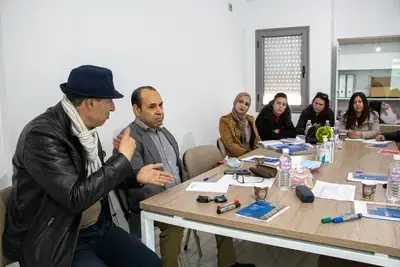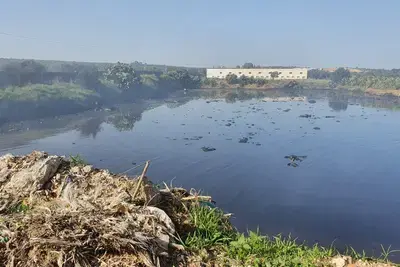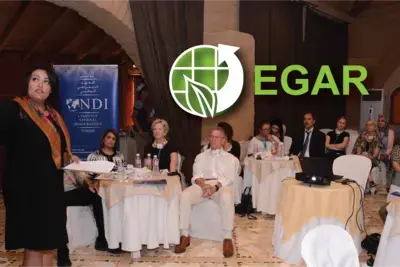
Success Story
Tunisian Youth Focus on Building Blocks of Party Organizing
After playing a leading role in the 2011 protest movement that launched the Arab Spring, Tunisian youth are now trying to find their place in the country’s political parties. They have been active in party organizing and are eager for more responsibility ahead of presidential and parliamentary elections anticipated for late this year.
As political leaders in Tunis finalized negotiations on a new election law last month, NDI convened 100 young activists from five political parties to focus on the building blocks of party organizing. Seasoned political activists from around the world gathered April 23-27 to exchange best practices on collecting and using data on voters and supporters, organizing grassroots campaigns, message development and dissemination, creating effective printed campaign materials and fundraising.
At the event’s opening session, young men and women from each party—Afek Tounes, Ennahda, Ettakatol, Jabha Chaabia and Nidaa Tounes—networked across party lines. Then they heard from the coordinator of the Mourakiboun Network, a civil society group that observed elections in 2011 and plans to do the same this year, who presented the group’s election data portal—which includes demographic data and voting results by governorate from the 2011 elections—as a resource for parties’ campaign plans for the next elections.
Participants rotated through sessions on different elements needed to build a political party, from understanding how voter databases can strengthen your mobilizing power to knowing how to raise money for your candidate. These single-party sessions allowed youth activists to speak frankly about the opportunities and the challenges their parties face – such as struggles with internal organization or engaging voters. They also considered, as a team, creative ways to engage citizens around issues in their communities.
The presenters focused on understanding who a party’s supporters and potential supporters are, and focusing on issues that matter to those groups. All trainers emphasized taking small steps forward with a long-term goal in mind. For example, a simple Excel spreadsheet that tracks attendees at party events for the upcoming election cycle can lay the groundwork for a sophisticated online database down the road.
Grassroots Organizing
Slobodan Milic, NDI Jordan senior program manager, led sessions on integrating a grassroots approach—based on learning citizens’ concerns through surveys and questionnaires, proposing solutions to those concerns and engaging the community to take action—into party work. Participants developed questionnaires, created platforms, slogans and logos, and planned outdoor activities. One group designed a campaign to improve traffic conditions ending in a demonstration in a roundabout. “You don’t need to wait for orders from your party; you can drive the party forward by initiating these activities,” Milic told participants.
Effectively Using Data
John Hagner, senior vice president at Clarity Campaign Labs, drew on his experiences in database development for the U.S. Democratic Party to discuss data collection and analysis, focusing on building the parties’ databases of voters and supporters. He guided participants through an exercise in which they analyzed mock polling data to determine where their party should hold events in the days leading up to the election, based on where the party stands to gain the most seats.
Persuasive Use of Images and Print Media
Aaron Leibowitz, principal at the political direct mail consulting firm Targeted Creative Communications, presented examples of vivid, memorable print materials from Republican Party campaigns in the U.S. such as a flyer which announced on the front that a candidate “hated puppies.” The other side of the flyer explained that this was an example of the kinds of unreasonable attacks opponents were levying against the candidate. He then helped parties develop attention-grabbing sample flyers of their own.
Building an Online Communications Strategy
Jean-Noé Landry, a Canadian political activist with the New Democratic Party and open data advocate, gave a presentation on developing a strong social media presence and translating it into meaningful citizen engagement. Landry emphasized that the end goal is not only to get “likes” on Facebook, but also to get people involved offline. In his session, participants developed an hour-by-hour social media calendar for the week leading up to elections and developed storyboards for YouTube videos.
Building a Fundraising Strategy
In a session led by a former deputy mayor in Serbia, Mirjana Barbulovic, on budgeting and fundraising, participants developed fundraising events, identified potential donors, set financial goals, projected event expenses and prepared a mock donor meeting.
In the evenings, participants were invited to take part in informal discussions with visiting experts on their areas of expertise and the politics of their countries of origin. Conversation ranged from the U.S. electoral college to women’s political participation to global initiatives to encourage open government.
At the end of the event, the five party teams put their new knowledge to use in a final project: developing a grassroots campaign for Tunisian youth that would bring party organizing outside the meeting room and into the public eye. The campaigns had to include clear messages, expressed in print and digitally, that would connect with targeted citizens, as well as plans for fundraising and using data to target voters.
After working through the night, parties presented their campaigns—which addressed cultural, economic, infrastructure, and environmental issues directly related to youth—for feedback from NDI. Their presentations included citizen surveys; catchy logos, slogans, flyers, and messaging; fundraising strategies and budgets; tools for collecting and using data; detailed social media campaigns with hashtags and YouTube videos; and grassroots actions. Parties left with substantive plans for grassroots campaigns to share with party leadership and begin executing.
“Once more we’ve seen that the future of Tunisian politics lies within the youth,” said NDI Senior Program Manager Wim Borremans. “They show an openness toward each other and the world and a creativity in political ideas and campaign techniques that will help build a sustainable democracy in Tunisia.”
As elections quickly approach, young party activists have an opportunity to use their drive and creativity to help create responsive, effective parties that will serve to consolidate democracy—and they are well on their way.
Read more:
Published May 6, 2014



